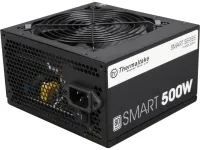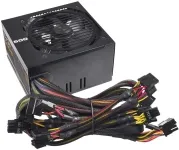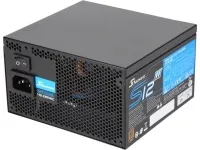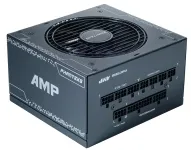Empfohlenes Netzteil für AMD EPYC 7473X und NVIDIA RTX A1000
Empfohlene 500W-Netzteile
Empfohlene 550W-Netzteile
| AMD EPYC 7473X Specifications | |
| Power Draw (TDP) | 240W |
| CPU Cores | 24 |
| CPU Threads | 48 |
| CPU Frequency | 2.8-3.7GHz |
| L3 Cache | 768MB |
| Lithography | 7nm |
| NVIDIA RTX A1000 Specifications | |
| Power Draw (TDP) | 50W |
| Memory Size | 8GB |
| Memory Type | GDDR6 |
| Lithography | 8nm |
Welches Netzteil passt zu AMD EPYC 7473X und NVIDIA RTX A1000?
Sie benötigen ein Netzteil mit mindestens 500W
Wie hoch sind die Anforderungen an das Netzteil für AMD EPYC 7473X?
Die Mindestanforderungen an das Netzteil für AMD EPYC 7473X sind ein Netzteil mit mindestens 450W
Wie hoch sind die Anforderungen an das Netzteil für NVIDIA RTX A1000?
Die Mindestanforderungen an das Netzteil für NVIDIA RTX A1000 sind ein Netzteil mit mindestens 250W
Wie hoch sind die Anforderungen an das Netzteil für AMD EPYC 7473X und NVIDIA RTX A1000?
Die Mindestanforderungen an das Netzteil für AMD EPYC 7473X und NVIDIA RTX A1000 sind ein Netzteil mit mindestens 500W
Hilfe bei der Auswahl eines Netzteils
Sie sind sich immer noch nicht sicher, welches Netzteil Sie für Ihr Rig wählen sollen? Kein Problem, stellen Sie uns einfach Ihre Frage über die Facebook-Chatblase oder füllen Sie unser Kontaktformular aus
Über AMD EPYC 7473X
Der Prozessor EPYC 7473X, hergestellt von AMD, wurde im März von 2022 veröffentlicht.
Die CPU hat 24 Kerne mit Hyperthreading (48 Threads). Die Frequenz der CPU ist 2.8GHz und kann bis zu 3.7GHz gehen.









